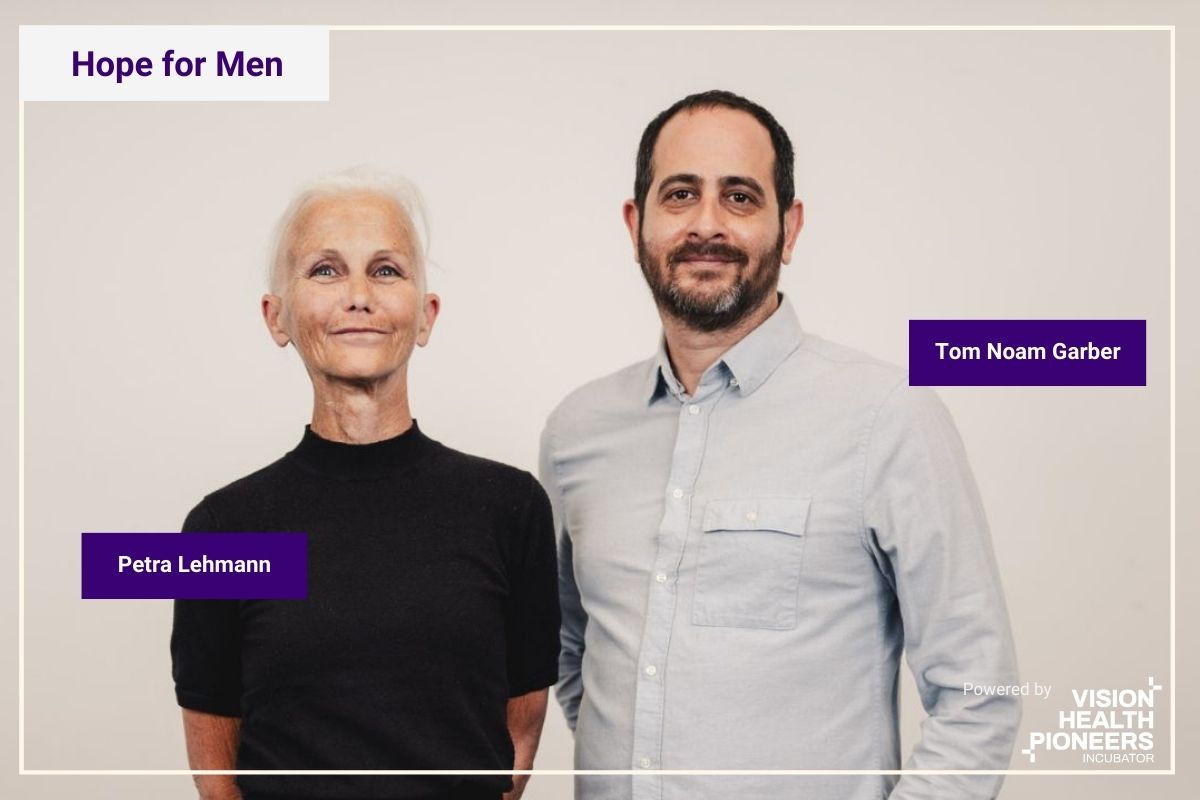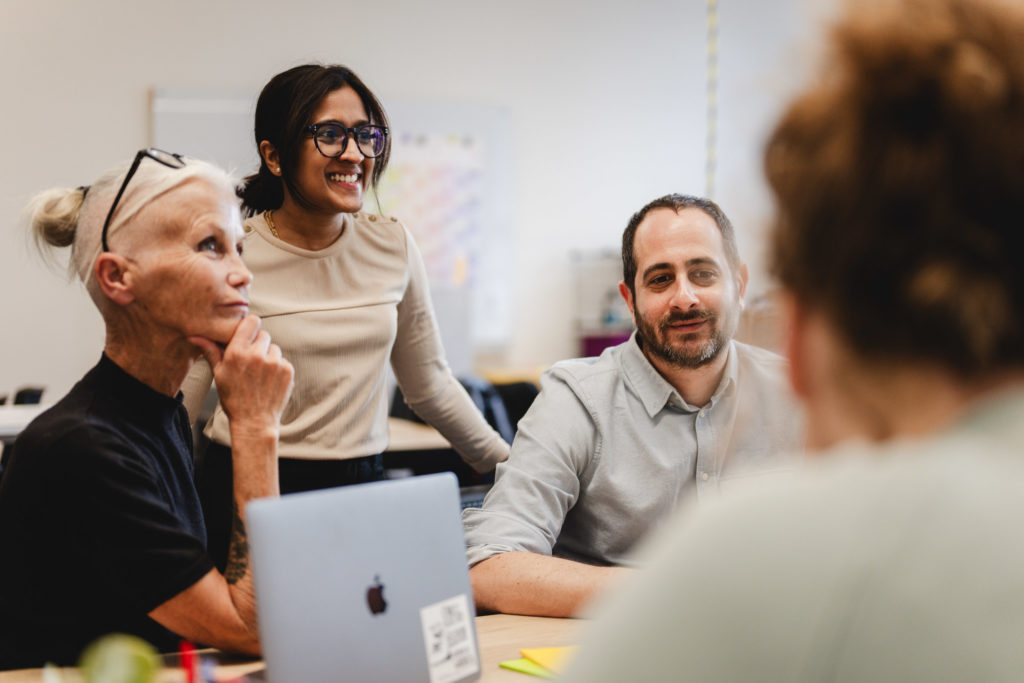
13 Dec The Hopeful Story of Hope for Men – The startup that supports men with unwanted sexual experiences
“We are planning to be the leading voice on sexual trauma in men. That is our main goal, and we seek to work with other organizations because we are not alone in this”
Hope for Men is an online support platform for everyone who identifies as male and has had unwanted sexual experiences. Much to the surprise of many, such experiences are very common. In Germany, 1 in 6 men have experienced sexual abuse or assault. But in reality, this number could be much higher. Tom, the co-founder of Hope for Men, states that “..most men don’t report what happened to them. Often when I speak with people who’ve had an unwanted sexual experience, they say they never thought about reporting it. And while some don’t consider it a traumatic event, it doesn’t mean that it isn’t something that’s stored as trauma in the body… I spoke with an investor a week ago, and he vividly remembered how an old man was touching him while he was sitting at a bus stop. Decades later, he remembered everything, yet still didn’t think of it as trauma.”
The good news is that more men are talking about unwanted sexual experiences and their mental health more generally (still only a third of therapy seekers in Germany are men).
However, finding the therapist that is right for you through general therapy platforms is no easy feat. According to Hope for Men’s founding member and content designer Petra Lehmann, “The therapists we spoke with all stated that working with people experiencing trauma, such as survivors of non-consensual sexual experiences, requires a specific trauma-informed and trauma-sensitive skillset. These therapists exist on other platforms, but finding them often requires intensive searching and making do with ‘near enough’ expertise. And many platforms do not specifically offer “men’s issues” in their lists of therapists’ expertise.”
Hope for Men is here to change that.
Meeting at the crossroads of our lived experiences
“Everyone lives distinct lives and interprets the world uniquely. Developing solutions requires recognizing and respecting these differences. Maintaining an open mind, cultivating empathy, and embracing the need for varied approaches based on different circumstances are essential aspects.”
Tom Naom Grauber, co-founder, Hope for Men
The Hope for Men team has remarkably diverse lived experiences, yet are united by their mission to support men and make a social impact by shifting the conversation around men’s mental health.
At the age of 13, Tom was sexually assaulted by an adult man, an experience that stayed with him ever since. It took him years to fully make sense of what exactly happened, but in the background, the experience exerted a deep impact on his mental health. “I dealt with a lot of mental issues for many years, and it was only when I heard other men speaking about it openly on TV on the Oprah Winfrey Show that something in me clicked and said, oh, this is what happened to me.” Team member Petra Lehmann attests that “often it’s the conflict inside oneself about what happened, or how one should feel about what happened, that leads to mental health impacts like depression, anxiety, and even PTSD.” For Tom, the mental health conditions were symptoms, or alarm bells, of a deeper malaise.
Tom’s traumatic experience has always manifested itself as a necessity to create. Before he applied to Vision Health Pioneers Incubator with his business idea, he worked as a filmmaker. “All of the films that I wrote or directed always touched upon sexual trauma in men of different ages.” His experience as a filmmaker proved invaluable as a founder, or as Tom says: “I drew significant insights from it. In my role as a producer, my responsibilities encompassed building cohesive teams, managing budgets, and setting goals. Not having a Hollywood-sized budget forced me to be exceptionally creative in finding solutions for the team. I believe limitations spur creativity—the fewer resources you have, the more inventive you become.”
Screenwriting, on the other hand, taught Tom to perceive the world from diverse perspectives. “This skill is crucial when addressing the problems others face. While I’ve personally dealt with sexual trauma, acknowledging the diversity of individual experiences is paramount. Everyone lives distinct lives and interprets the world uniquely. Developing solutions requires recognizing and respecting these differences. Maintaining an open mind, cultivating empathy, and embracing the need for varied approaches based on different circumstances are essential aspects.”
Team member Petra has a background as a senior drug and mental health nurse, working for over a decade in community settings in Australia. The topic of sexual trauma wasn’t new to her: “A significant number of the clients I worked with experienced sexual violence.” While she loved the work, Petra realized that the time had come to pursue a different path. She moved to Berlin and started studying UX writing. Petra and Tom met through LinkedIn, and what began as a first meeting in a cafe quickly turned into a weekly coffee date. “Petra was the first person who told me yes (to join the team). For me, it was like a gift, and it’s it’s still a gift that keeps giving. I don’t know if I or this company would be where it is today without her.”

Diversity, built into the product
Diversity isn’t just characteristic of the team constellation, it’s at the heart of how the founders think about their product and users. “We aim to be a global therapy provider”, emphasizes Petra, “and the therapists that we would have on our platform will come from diverse backgrounds speaking diverse languages so that men can choose a therapist who understands them.”
Research shows that therapists identified the need for improved training for mental health professionals working with gender-diverse populations and attention to racial and cultural implications for effective psychotherapy. Many accepted interventions make the universal assumption that “what works for one will work for all”, and are inadequately adapted for racially, culturally, and linguistically unique populations.
This lack of knowledge results in an inability to recognize the differences; self-protection and denial lead to an attitude in which such differences are seen as insignificant. Universalistic assumptions are reflected in a practice that does not meet the needs of people from historically underrepresented communities. Therapists with the lived experiences of such communities, however, are more able to meet their needs.
“Our goal, therefore,”, insists the team, “is to ensure all our therapists are not only from diverse backgrounds, cultures, and identities, but are also experienced trauma therapists, thus reassuring therapy-seekers that all available therapists will understand from the outset the unique challenges they face when seeking support.”
Visions of a future and the road ahead
Community is at the core of the team’s product. “We want to create a community for men, but also a community for therapists.”, says Petra. “A lot of therapy platforms are just there to take money from people, and this is something that we want to do differently. We’re looking at people as unique human beings.”
“In January,” Tom says, “we’re going to start an online support group for men, which will be free of charge. We’ll host six biweekly sessions to get men starting to talk about this topic.” Later that month, the team wants to launch its MVP. “We will have the first therapists on the platform so men can start booking appointments and get to know them. Over the following months, we will start adding more features from the feedback that we will get from early users.”
Hope for Men has an inspiring vision to make healing from unwanted sexual experiences accessible to everyone. Tom: “We’re hoping to be a successful company and also give back to society. One percent of our revenue will go to men who cannot afford therapy through our platform.”
It doesn’t stop there. Tom adds that the long-term vision also includes sponsoring individuals who cannot afford to go to university and train to become therapists. “There are many communities that don’t have representation in therapy. Like, if you’re a black person in the US, it’s tough to find a therapist who shares your identity or culture and who would understand you. And this is very important for the therapy.” Becoming a licensed psychotherapist isn’t cheap – Studies and Training in Germany quickly add up to more than 10,000 euros, and in the US, costs are easily three times that.
Many times, the team has been told off. Everyone admires Tom’s courage and vulnerability to share his story, yet most resort to the assumption that men don’t want to talk about their feelings, let alone “reveal” their unwanted sexual experiences. Early feedback, however, shows that the need to talk is there – that men want to heal.
For me, the team’s mission is a testament to the power of the human will to turn adversity into creation – an act of healing that invites fellow human beings to heal alongside us. If anything, Hope for Men gives men the permission to speak up; to sit with the complexity of never fully knowing how to feel about what happened to us, and to say that that’s ok.
We’re here to hold each other.
Hope for Men is launching its Online Support Group on January 10. Interested? Learn more here https://www.hopeformen.org/supportgroup



